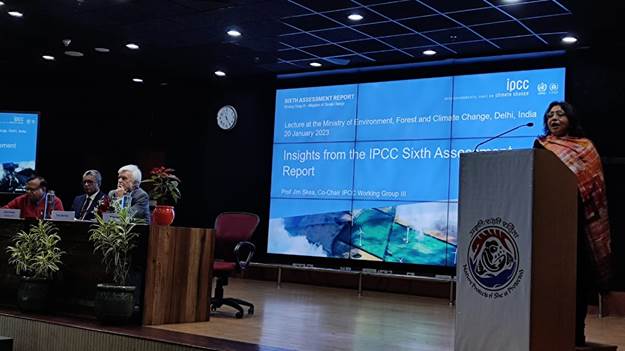
As an outcome of COP27 at Egypt, the Sharm El-Sheikh Implementation Plan notes the importance of transition to sustainable lifestyles and sustainable patterns of consumption and production to address climate change. It also notes the importance of pursuing an approach to education that promotes a shift in lifestyles while fostering patterns of development and sustainability based on care, community and cooperation. This is in line with objectives of Mission LiFE launched by Prime Minister Shri Narendra Modi in the presence of UN Secretary General on 20th October, 2022.
Dr. Jim Skea spoke about the structure of IPCC and described how IPCC has produced three special reports and three Working Group reports during the sixth assessment cycle. He summarized the findings of the three Working Groups emphasizing the following findings from WG III:
- Lifestyle has been a neglected part of the climate discourse and its significant potential has now been identified in the WG III report.
The lecture was followed by discussion on historical cumulative emissions, the role of methane, financial mechanisms, sequestration potential of forests, data quality and needs, adaptation, Equity, climate justice, modelling assumptions, methods of preparing GHG inventories and the role of atmospheric observations.
In the above backdrop, it emerged that IPCC AR6 Synthesis Report, which is on anvil, should incorporate findings from three Working Group Reports in a balanced manner reflecting developing country concerns including historical cumulative emissions, declining carbon budget, adequacy of means of implementation and minimizing the adaptation gap.







